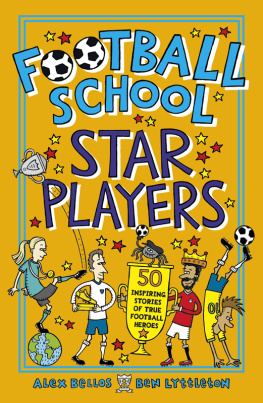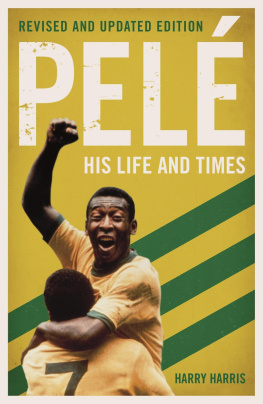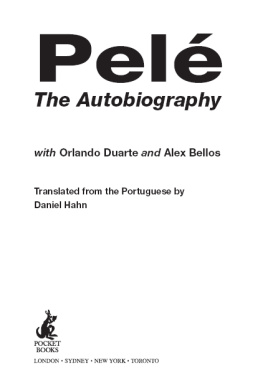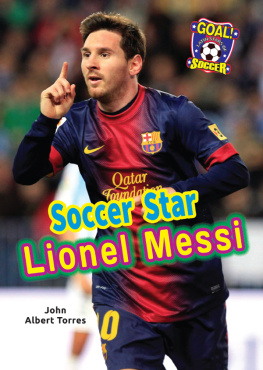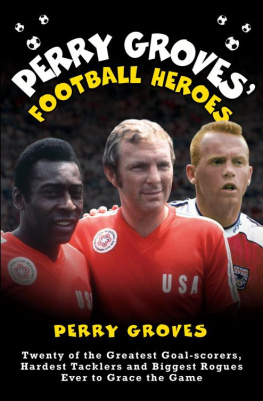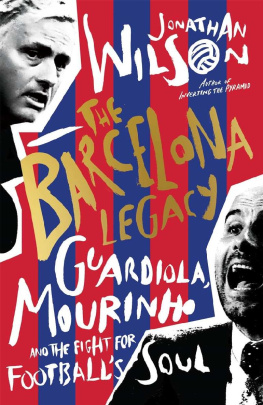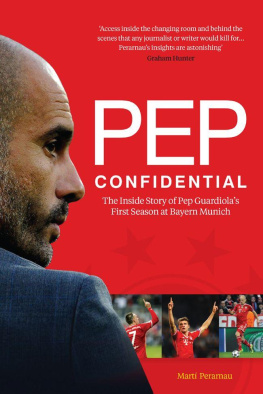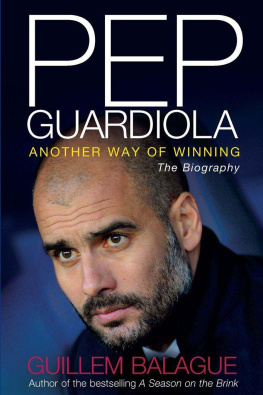Timeline
As a player
Domestic
1964 1973 Ajax (319 appearances, 253 goals)
1973 1978 Barcelona (184 appearances, 61 goals)
1979 Los Angeles Aztecs (27 appearances, 14 goals)
1980 1981 Washington Diplomats (32 appearances, 12 goals)
1981 Levante (10 appearances, 2 goals)
1981 1983 Ajax (52 appearances, 20 goals)
1983 1984 Feyenoord (44 appearances, 13 goals)
International
1966 1984 Netherlands (48 appearances, 33 goals)
Trophies
Ajax Eredivisie 1966, 67, 68, 70, 72, 73, 82, 83;
KNVB Cup 1967, 71, 72, 83;
European Cup 1971, 72, 73;
European Super Cup 1972, 73;
Intercontinental Cup 1972
Barcelona La Liga 1974; Copa del Rey 1978
Feyenoord Eredivisie 1984; KNVB Cup 1984
As a manager
1985 1988 Ajax (KNVB Cup 1986, 87; European Cup Winners Cup 1987)
1988 1996 Barcelona (La Liga 1991, 92, 93, 94; Copa del Rey 1992; European Cup 1992; European Cup Winners Cup 1989)
2009 2013 Catalonia
Honours
1971 Ballon dOr
1973 Ballon dOr
1974 Ballon dOr and World Cup Player of the Tournament
Significant dates
1947 (25 April) born in Amsterdam
1957 (April) joins Ajax youth
1959 (8 July) father dies
1964 (15 November) makes first-team debut for Ajax and scores his first goal in 31 defeat to GVAV
1965 scores first hat-trick and 25 goals for the season; Ajax win Eredivisie
1966 (7 September) makes debut and scores for Netherlands in Euro 68 qualifier against Hungary (22)
1967 (6 November) becomes first Dutch international to receive a red card
1966 67 is leading scorer in the league (33 goals) and Dutch Footballer of the Year; Ajax win the Eredivisie and KNVB Cup
1967 68 named Dutch Footballer of the Year; Ajax are Eredivisie champions for third successive year
1968 (10 December) marries Danny Coster
1969 (28 May) Ajax lose European Cup final to Milan (41)
1970 returns from injury wearing No. 14 shirt; he would wear the same number for the rest of his Career
1970 (29 November) scores six goals in 81 defeat of AZ 67
1971 named Dutch and European Footballer of the Year; (2 June) Ajax win the European Cup final for the first time (21 vs Panathinaikos); signs seven-year deal with Ajax
1972 (31 May) scores both goals as Ajax win second European Cup (20 vs Inter Milan); Ajax win Intercontinental Cup
1973 (30 May) Ajax win European Cup for third successive season (10 vs Juventus)
1973 (19 August) plays last match for Ajax before moving to Barcelona for world record fee ($2 million approx.)
1974 (9 February) son Jordi born; birth registered in Amsterdam as name is illegal in Spain under Francos regime
1974 (17 February) Barcelona beat Real Madrid 50 at the Bernabu and go on to win La Liga for first time since 1960
1974 leads Netherlands to World Cup final, losing 21 to West Germany; named Player of the Tournament; first demonstrates the Cruyff Turn during a group game against Sweden
1974 (December) named European Footballer of the Year
1977 (October) retires from international football
1978 (19 April) Barcelona win Copa del Rey (31 vs Las Palmas)
1978 Netherlands reach the World Cup final again, losing 31 to Argentina in extra time; Cruyff doesnt play in the tournament
1979 Barcelonas La Masia youth academy founded on Cruyffs advice
1979 moves to Los Angeles Aztecs; voted NASL Player of the Year
1980 moves to Washington Diplomats
1980 (November) rejoins Ajax, then in 8th place, as technical advisor; Ajax finish season in 2nd
1981 moves to Levante after a transfer to Leicester City falls through
1981 82 signs as a player for Ajax; Ajax win Eredivisie
1982 83 Ajax win Eredivisie and KNVB Cup double
1983 84 moves to rivals Feyenoord after Ajax fail to renew his contract; Feyenoord win the league and KNVB Cup double
1984 named Dutch Footballer of the Year for a fifth Time
1984 (13 May) retires from competitive football
1985 (June) joins Ajax as technical director (de facto Manager)
1985 87 Ajax win KNVB Cup in two consecutive seasons
1987 (13 May) Ajax win European Cup Winners Cup (10 vs Lokomotive Leipzig)
1988 (Summer) joins Barcelona as manager
1989 (10 May) Barcelona win European Cup Winners Cup (20 vs Sampdoria)
1990 (5 April) Barcelona win Copa del Rey
1991 (February) undergoes double heart bypass surgery
1992 (20 May) Barcelona win European Cup (10 aet vs Sampdoria)
1993 (February/March) Barcelona win European Super Cup (32 agg. vs Werder Bremen)
1991 94 Barcelona win La Liga four times in Succession
1996 (April) is sacked as manager of
1997 Cruyff Foundation established
1999 voted European Player of the Century and comes second to Pel in World Player of the Century poll
1999 Cruyff Institute founded
2004 named in FIFA 100 list of the worlds greatest living players
2009 100th Cruyff Court opened
2015 (October) is diagnosed with lung cancer
2016 (24 March) dies in Barcelona, aged sixty-eight
Preface
Im not a person with college degrees. Everything Ive learned, Ive learned through experience. After I lost my father at the age of twelve, my life was defined by Ajax. First by my second father, who was the clubs groundsman, and later by my trainers Jany van der Veen and Rinus Michels. Thanks to Ajax, I didnt just learn to be a better footballer, I learned how to behave.
Through my father-in-law I gained financial experience. When I started out, no footballer in the world had ever heard of marketing, and dealing with business was something completely new. But someone came into my life who would help me with that and bring me up. Because every time I thought I could do it on my own, things immediately went wrong. It doesnt matter. Its part of life. In the end its more important whether youve learned from it or not.
I want to stress how important my family is. Not just my parents, my in-laws, wife, children and grandchildren, but also all the people who took me by the hand at Ajax in a phase of my life when I was very fragile. So Ajax is family to me as well. Family has also defined who I am now. Someone who has one shortcoming when it comes to football: I can only think about being at the top. As a player or a coach Im not capable of doing something at a low level. I can only think in one direction. Upwards. To be the best possible. Thats why, in the end, I had to stop. I was no longer in a physical condition to do what was needed at the top, and once thats the case you have no business being on the pitch. But because I was in a good mental state I became a coach.
Above all I want to say that my life has always been lived with a view to doing things better and getting better. Ive translated that into everything Ive done.
Johan Cruyff
March 2016
Everything I have done has been done with a view to the future, concentrating on progress, which means that the past is not something that I think about too much. For me, this is completely natural. Details of the matches I have played in have been written about better by other people elsewhere; what I am interested in is the idea of football. Continually looking forward means that I can concentrate on getting better at whatever I am doing, and I only really look back in order to gauge what I can learn from mistakes. Those lessons can be taken from different points in your life, and you dont necessarily see how connected everything is until later. So while I always move forward, I cant always look at whats gone before as a straight line. At the heart of what I have learned as a player is that, above all else, you need four things: good grass, clean changing rooms, players who clean their own boots and tight goal nets.


